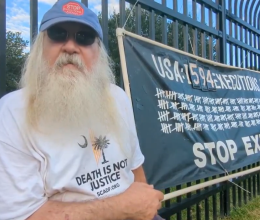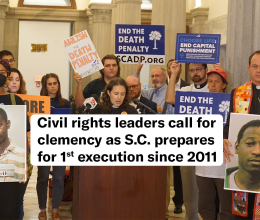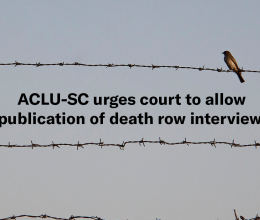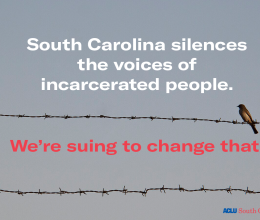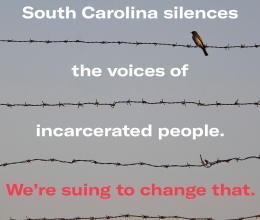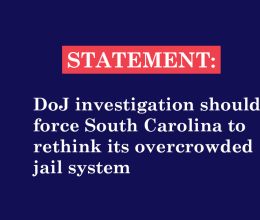
A weeks-long prison protest that began Tuesday in 17 states put officials on alert in South Carolina, where a deadly riot earlier this year inspired the movement.
The S.C. Department of Corrections did not immediately report any disturbances as a result.
Organizers and civil liberties advocates said inmates who hold jobs in their prisons were expected to go on strike, stay in their cells or refuse to eat, hoping to shed light on conditions behind bars.
Inmates in South Carolina have long complained of inadequate rehabilitation resources, bad food and poor medical and mental health care.
Since April, when seven inmates were killed and 22 others were injured at Lee Correctional Institution in Bishopville, advocates said security restrictions have further deteriorated morale among prisoners.
Corrections officials were aware of the start of the nationwide strike Tuesday, department spokesman Dexter Lee said in a statement.
The protest was scheduled to last until Sept. 9, organizers said.
“We are currently monitoring this situation for any activity within the prisons,” Lee said in response to questions from The Post and Courier. “The agency will take the necessary actions to ensure the prisons are safe.”
The Incarcerated Workers Organizing Committee, a grassroots organization made up of inmates and outside supporters, and other advocacy groups arranged the strike. The committee’s website says a similar effort on Sept. 9, 2016, the anniversary of the 1971 Attica Prison riot in New York, was one of the largest strikes in U.S. history.
This year’s effort was spurred by the Lee melee, the deadliest American prison riot in a quarter century. In a statement, the protest organizers called it a “senseless uprising that could have been avoided had the prison not been so overcrowded from the greed wrought by mass incarceration.”
State officials blamed contraband disputes for fueling the riot and illegal cell phones for contributing to its spread. Many inmates were stabbed in a series of fights. Some bled to death; some survived for seven hours until tactical teams restored order.
A bevy of lawsuits have been filed over the fracas and the factors that were thought to have led to it — problems that state officials said they are trying to address.
Organizers of the protest issued a list of 10 demands for prison officials nationwide. They included general improvements of conditions, voting rights and an increase in wages for inmates who work behind bars — jobs that advocates equated to “modern-day American slavery.” Some manufacturing and service industry programs in South Carolina pay prisoners between 35 cents and $1.80 per hour, the department’s website says.
Shaundra Scott, executive director of the American Civil Liberties Union of South Carolina, said the ACLU supports the prisoners’ right to peacefully protest. Security measures put into place since the Lee riot have worsened already poor conditions, Scott said. She has heard complaints about blacked-out windows, limited recreation time and inedible food.
“Nobody is looking for a pass or a way out,” she said. “They just want to be treated like humans. They just want to do their time.”

